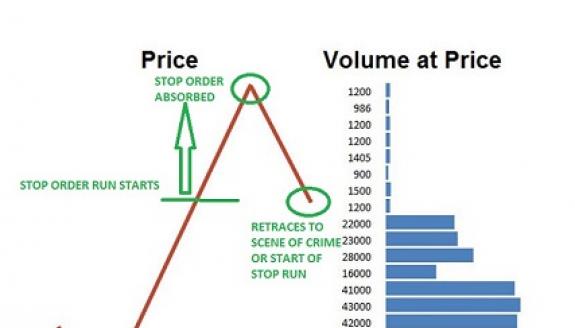
Look for dividend stocks that are strong in revenue and have high earnings growth. You should be wary of any company that has experienced slow revenue growth. A strong brand, along with a competitive advantage that is long-lasting, includes proprietary technology, low barriers to entry, low switching costs and strong branding. You can read on to learn more about these businesses and other details. Investing in these companies is a good way to earn high income from a dividend, but be sure to read the fine print and research the company thoroughly before making a decision.
Walgreens Boots Alliance
If you want to invest in a dividend stock, Walgreens Boots Alliance (WBA) might be a good choice. The company has been paying dividends on its stock continuously since 1972 and has grown its dividend each year for 46 years. Its annual dividend growth rate exceeds 6% and qualifies for the titles of Dividend Champion and Dividend Aristocrat. The dividend yield of WBA is 1.91 USD. Other details include historical stock price and payout ratio as well special dividends.
At the time of writing, Walgreens Boots Alliance, Inc. has no analysts. But, if the stock interests you, then read the stock. A stock's analyst coverage is a good indicator of its potential to grow its dividend. This company is expected continue to grow as a dividend powerhouse. Investors should be aware of its dividend history.

Microsoft
The company's cash flow is a key factor in evaluating dividends. Dividends are usually paid out of a company's profits. However, it is important to pay more attention to the free cash flow. Microsoft's free cash flow of 28% last year was a good payout ratio. The company also has a long history of paying out dividends and continues to increase its payout every year.
Microsoft is a high-quality dividend stock due to its business fundamentals that are solid and the potential for growth. The company is a global business that develops and licenses software for many devices. The company's primary focus is productivity & business processes. This includes Microsoft Office products and LinkedIn services as well as Microsoft Dynamics business solutions. Microsoft's growth rates and dividend payouts ratios have been outstanding over the last few years. Microsoft's current dividend rate is 0.8%.
Johnson & Johnson
As a healthcare company, Johnson & Johnson (JNJ) offers investors a steady and secure income stream. The stock's dividend yield of 2.5% is higher than that of most savings accounts, but it's lower than those of safer investments like bonds. Furthermore, since Johnson & Johnson is a large, established corporation, its stock tends to appreciate each year. Johnson & Johnson shares typically don't achieve the same growth rate as smaller-cap stocks or growth stocks.
JNJ investors need to purchase shares before the ex dividend date. This is the 25th day in a month prior the quarterly payout. The exact date can vary from quarter to quarter so make sure you check the investor relations website. JNJ management has not provided specific guidance on future dividend payments. It has increased its dividends consistently and recently announced a 6.3% increase in April 2020.

Caterpillar
Among other things, Caterpillar is a great stock to own for its low volatility. It has suffered many corrections in one month when the market is afraid and it falls faster. Joshua Brown, "The Reformned broker", recently stated that volatility is not risk. Opportunistic buying is what it is. Caterpillar is selling at a discount of 32% to its fair price, which means that you can secure a 17%-31% CAGR total Return over the next five Years.
Caterpillar has maintained its dividend growth streak for decades, despite slowing down a bit during downturns. The company has also avoided going negative on its operating earnings cash flow payout ratio for the last 20 years. The average annual dividend increase has been 9.1% over the same period. This is twice as fast than the S&P500's. As of this writing, Caterpillar management expects to increase dividends by at least 10% a year through 2022.
FAQ
What are the advantages of investing through a mutual fund?
-
Low cost - buying shares directly from a company is expensive. It is cheaper to buy shares via a mutual fund.
-
Diversification - most mutual funds contain a variety of different securities. If one type of security drops in value, others will rise.
-
Professional management – professional managers ensure that the fund only purchases securities that are suitable for its goals.
-
Liquidity: Mutual funds allow you to have instant access cash. You can withdraw money whenever you like.
-
Tax efficiency – mutual funds are tax efficient. This means that you don't have capital gains or losses to worry about until you sell shares.
-
Buy and sell of shares are free from transaction costs.
-
Easy to use - mutual funds are easy to invest in. All you need is money and a bank card.
-
Flexibility – You can make changes to your holdings whenever you like without paying any additional fees.
-
Access to information: You can see what's happening in the fund and its performance.
-
Ask questions and get answers from fund managers about investment advice.
-
Security - you know exactly what kind of security you are holding.
-
You can take control of the fund's investment decisions.
-
Portfolio tracking – You can track the performance and evolution of your portfolio over time.
-
Easy withdrawal: You can easily withdraw funds.
Disadvantages of investing through mutual funds:
-
Limited investment options - Not all possible investment opportunities are available in a mutual fund.
-
High expense ratio - the expenses associated with owning a share of a mutual fund include brokerage charges, administrative fees, and operating expenses. These expenses can impact your return.
-
Lack of liquidity-Many mutual funds refuse to accept deposits. They must be bought using cash. This limit the amount of money that you can invest.
-
Poor customer support - customers cannot complain to a single person about issues with mutual funds. Instead, you should deal with brokers and administrators, as well as the salespeople.
-
High risk - You could lose everything if the fund fails.
What is an REIT?
A real estate investment trust (REIT) is an entity that owns income-producing properties such as apartment buildings, shopping centers, office buildings, hotels, industrial parks, etc. They are publicly traded companies that pay dividends to shareholders instead of paying corporate taxes.
They are similar in nature to corporations except that they do not own any goods but property.
How are Share Prices Set?
Investors set the share price because they want to earn a return on their investment. They want to earn money for the company. They then buy shares at a specified price. If the share price goes up, then the investor makes more profit. If the share value falls, the investor loses his money.
The main aim of an investor is to make as much money as possible. This is why they invest into companies. They are able to make lots of cash.
How do I choose a good investment company?
You should look for one that offers competitive fees, high-quality management, and a diversified portfolio. Fees are typically charged based on the type of security held in your account. Some companies charge no fees for holding cash and others charge a flat fee per year regardless of the amount you deposit. Others charge a percentage on your total assets.
You should also find out what kind of performance history they have. You might not choose a company with a poor track-record. Avoid companies that have low net asset valuation (NAV) or high volatility NAVs.
It is also important to examine their investment philosophy. Investment companies should be prepared to take on more risk in order to earn higher returns. If they're unwilling to take these risks, they might not be capable of meeting your expectations.
What is the difference of a broker versus a financial adviser?
Brokers are specialists in the sale and purchase of stocks and other securities for individuals and companies. They take care of all the paperwork involved in the transaction.
Financial advisors are experts on personal finances. They use their expertise to help clients plan for retirement, prepare for emergencies, and achieve financial goals.
Financial advisors can be employed by banks, financial companies, and other institutions. Or they may work independently as fee-only professionals.
It is a good idea to take courses in marketing, accounting and finance if your goal is to make a career out of the financial services industry. It is also important to understand the various types of investments that are available.
What is a Stock Exchange, and how does it work?
Companies can sell shares on a stock exchange. This allows investors to purchase shares in the company. The market sets the price of the share. It usually depends on the amount of money people are willing and able to pay for the company.
Companies can also get money from investors via the stock exchange. Investors are willing to invest capital in order for companies to grow. Investors buy shares in companies. Companies use their money to fund their projects and expand their business.
There can be many types of shares on a stock market. Some are called ordinary shares. These shares are the most widely traded. Ordinary shares can be traded on the open markets. Stocks can be traded at prices that are determined according to supply and demand.
Other types of shares include preferred shares and debt securities. When dividends are paid out, preferred shares have priority above other shares. If a company issues bonds, they must repay them.
Statistics
- The S&P 500 has grown about 10.5% per year since its establishment in the 1920s. (investopedia.com)
- Even if you find talent for trading stocks, allocating more than 10% of your portfolio to an individual stock can expose your savings to too much volatility. (nerdwallet.com)
- For instance, an individual or entity that owns 100,000 shares of a company with one million outstanding shares would have a 10% ownership stake. (investopedia.com)
- Our focus on Main Street investors reflects the fact that American households own $38 trillion worth of equities, more than 59 percent of the U.S. equity market either directly or indirectly through mutual funds, retirement accounts, and other investments. (sec.gov)
External Links
How To
How do I invest in bonds
An investment fund, also known as a bond, is required to be purchased. While the interest rates are not high, they return your money at regular intervals. This way, you make money from them over time.
There are many ways to invest in bonds.
-
Directly purchasing individual bonds
-
Buy shares from a bond-fund fund
-
Investing through a bank or broker.
-
Investing via a financial institution
-
Investing via a pension plan
-
Invest directly through a stockbroker.
-
Investing through a mutual fund.
-
Investing in unit trusts
-
Investing via a life policy
-
Private equity funds are a great way to invest.
-
Investing in an index-linked investment fund
-
Investing through a Hedge Fund